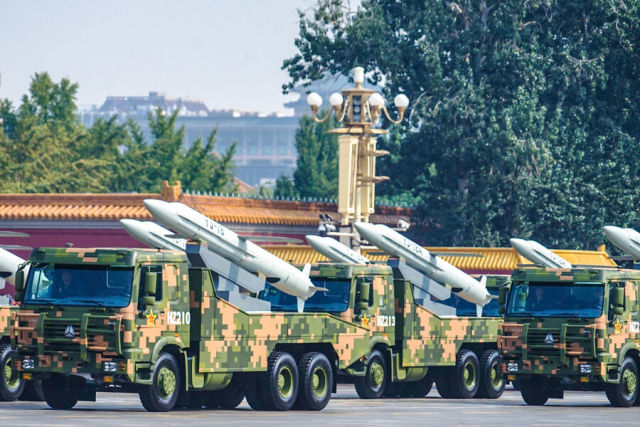Military expert Khodarenok: do not expect China to supply weapons and ammunition On March 20, Chinese President Xi Jinping arrived in Moscow on a state visit.
In this regard, the sphere of military-technical cooperation (MTC) between the two countries is of particular interest. There are no clear answers to the questions - whether the military-technical cooperation will receive a new impetus and, finally, whether it is possible in the near future to supply weapons, military and special equipment (VVST) from Beijing to Moscow.
Chinese President Xi Jinping noted that he is going to thoroughly exchange views with Vladimir Putin on issues of bilateral relations, important regional and international topics of mutual interest. This evening, at a joint dinner, Vladimir Putin and Xi Jinping will consider, as it was said earlier, "the most important, key" issues.
At the same time, it should be noted that the author's article by Chinese President Xi Jinping exclusively for RIA Novosti and Rossiyskaya Gazeta about military-technical cooperation between the two countries and the prospects for the supply of weapons and military equipment did not say a single word.
Vladimir Putin did not mention these problems in his article in the People's Daily "Russia and China - a partnership looking to the future."
With some degree of certainty, it is probably possible to predict which positions could hypothetically be negotiated and in which types of FTA Russia is most interested at present.
It is quite possible that the supply of the following materials and weapons could be discussed:
gunpowder (different grades);
explosives (trinitrotoluene, hexogen, etc.);
ready shots for 152 mm and 203 mm guns;
mines for 120 and 240 mm mortars;
MLRS ammunition;
152 mm guns (towed and self-propelled);
aviation weapons of destruction (primarily free-fall bombs);
tactical and operational-tactical missile systems;
tactical class unmanned aerial vehicles;
equipment (body armor, steel helmets, etc.).
At the same time, it should be noted that the supply of air force from China can destroy Beijing's image as a peacemaker (and on a global scale), which has largely been subordinated to the aspirations of Chinese foreign policy in recent times. And, I must say, Beijing has achieved considerable success in this area. It is enough to recall the reconciliation of Saudi Arabia and Iran.
Thus, even one echelon of 152 mm shells sent to Russia from China can lead to extremely undesirable consequences for the Chinese economy, which today, it should be noted, is far from being in the best position.
For these reasons, most experts agree that the supply of arms, military and special equipment from China to Moscow in the near future is unlikely to be expected. Any schemes involving third parties are also unlikely (this has been discussed a lot recently). Moscow needs dozens and hundreds of echelons, and it is simply impossible to hide such a scale of supplies from foreign technical and intelligence agencies today.
Mikhail Khodarenok

